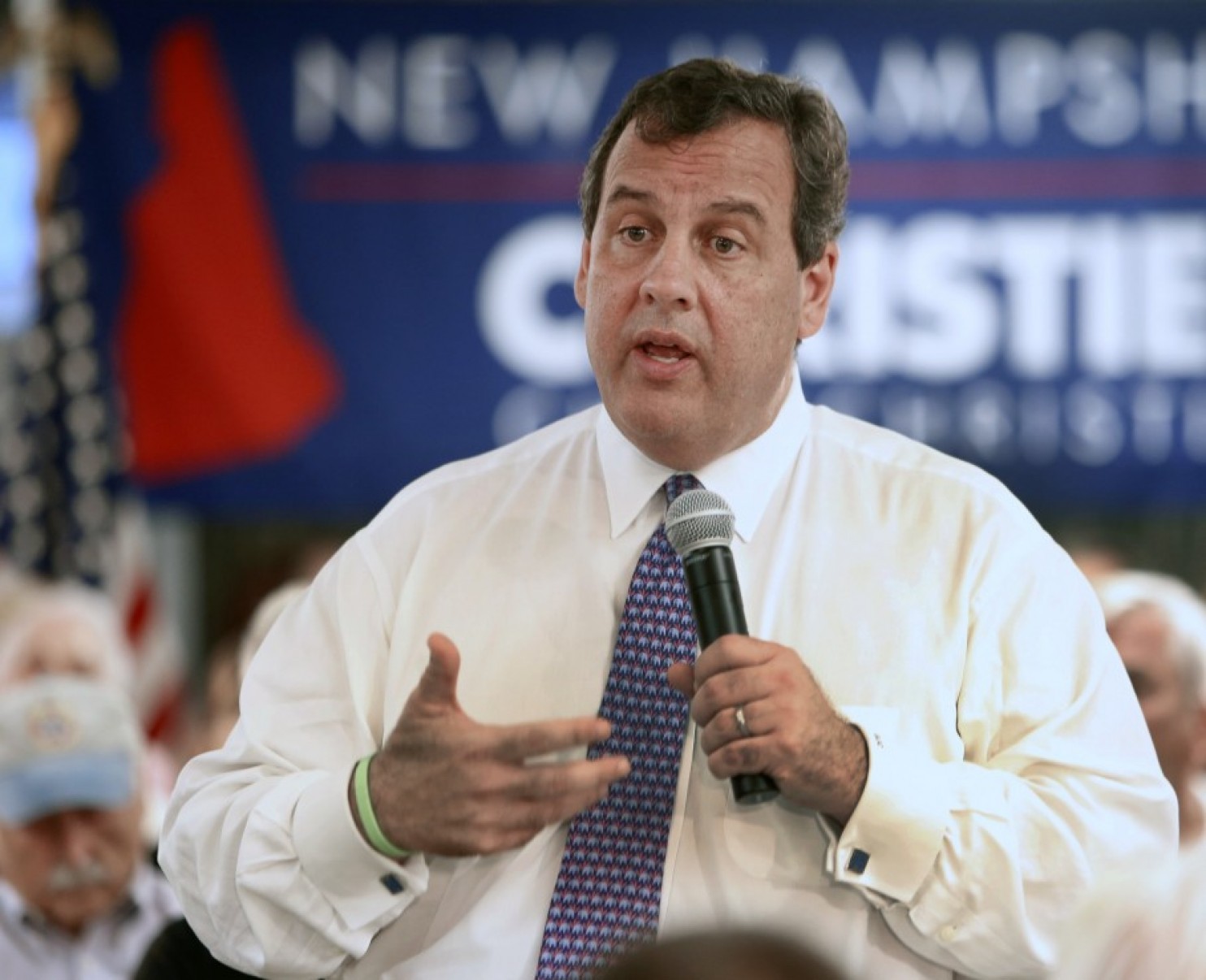
For years, Chris Christie has been advocating treatment over incarceration for offenders who have addiction issues. Both in New Jersey and on the campaign trail, he often tells the story of a good friend from law school who died after battling addiction for years. This week, Christie's comments on the issue went viral.
"I’m pro-life and I think that if you're pro-life you’ve gotta be pro-life for the whole life, not just the 9 months they’re in the womb," he said recently in New Hampshire. "It’s easy to be pro-life for the nine months they’re in the womb. They haven't done anything to disappoint us yet. They’re perfect in there, but when they get out, that’s when it gets tough. The 16-year-old teenage girl on the floor of the county lockup addicted to heroin, I’m pro-life for her, too."
For months, Christie and other White House aspirants have been discussing an issue that has risen to the fore across America: an epidemic of prescription drug and heroin abuse, which is killing more people each year than car crashes. The problem is particularly acute in New Hampshire, where Manchester Mayor Ted Gatsas said he doesn't let presidential candidate leave his office without talking to them about heroin.
“Every candidate that comes in here, what I say to them is, ‘It’s not only an issue here in Manchester, New Hampshire. It’s a national issue,’ ” Gatsas (R) told The Washington Post in May. “If we don’t get our arms around it, it’s going to take over our country.”
Democrat Hillary Clinton proposed a $10 billion plan to treat people addicted to drugs and reduce incarceration for nonviolent drug offenders as a way to stem what she called a "quiet epidemic" of prescription drug and heroin abuse. She has also held town hall meetings on the issue.
Republican Carly Fiorina talks about the death of her stepdaughter, Lori, to drug addiction, declaring during a Republican debate in September: "I very much hope I am the only person on this stage who can say this, but I know there are millions of Americans out there who will say the same thing," Fiorina said. "My husband, Frank, and I buried a child to drug addiction."
Republican Jeb Bush also opened up about dealing with addiction in his family; his daughter, Noelle, who struggled with substance abuse. She was arrested in 2002 for trying to fill a false prescription and sentenced to 10 days in jail for being in contempt of court.
Christie often tells the story of a good friend from law school who seemingly had it all: He made partner at a law firm, had a loving family and beautiful house. The friend was prescribed opiates after hurting his back and spiraled into addiction. Christie and other friends staged an intervention, but the friend continued to use drugs. His wife divorced him, he lost his job and savings.
"On a Sunday morning, Mary Pat and I got the call that we’d been dreading forever, that they found him dead, in a motel room with an empty bottle of Percocet and an empty quart of vodka. Fifty-two years old. By every measure we define success in this country, this guy had it," Christie said.
"And as I sat there as the governor of New Jersey at his funeral and looked across the pew at his three daughters sobbing because their dad is gone, there but for the grace of God go I. It can happen to anyone. We need to start treating people in this country, not jailing them. We need to give them the tools they need to recover, because every life is precious," he said.
Christie has signed bills improving access to drug prevention and treatment. In 2013, he signed a so-called "Good Samaritan" law that provides immunity from arrest for people who call 911 if they are with someone who overdoses while doing drugs. New Jersey also made Naloxone, a drug that can reverse the effects of opiates, available to friends and family members of known drug users. But he has taken a hard line on marijuana, calling medical marijuana programs a "front for legalization" and vowing to crack down on the drug from the federal level if he is elected president.
Despite Christie's efforts toward treatment in New Jersey, some say they don't have funding behind them.
"There’s no money to increase the number of beds” in treatment centers, state Sen. Joe Vitale (D), one of the New Jersey legislature’s most persistent treatment advocates, told The Washington Post.
Many in the state also say they are not able to access treatment through their insurance, something the Affordable Care Act was supposed to fix by requiring insurers to treat addiction like any other medical condition. But the law only went into effect for many insurance plans in January.
In New Jersey last year, just 10 percent of substance-abuse admissions were covered by private health insurance — down from 22 percent the previous year.
- Publish my comments...
- 0 Comments
